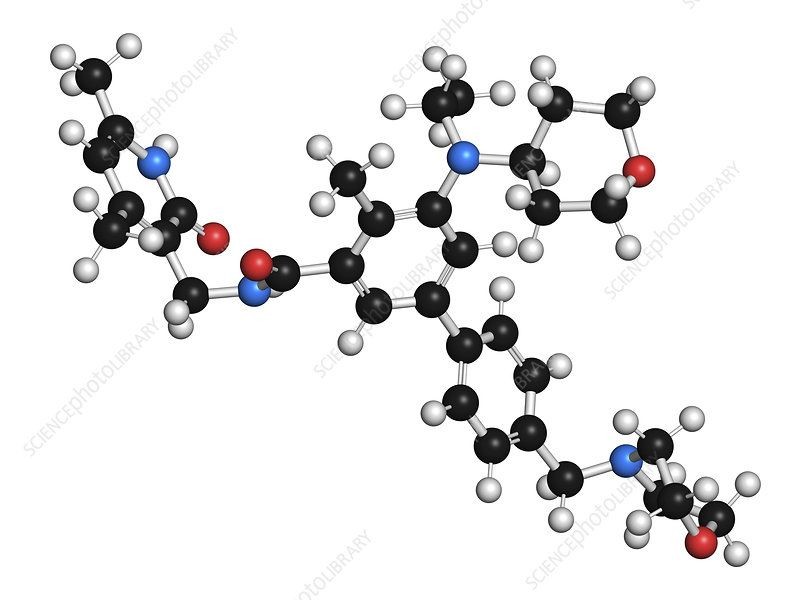
Tazemetostat: A Novel Medication for Cancer Treatment
Tazemetostat, an FDA-approved medication since January 2020, effectively treats advanced or metastatic epithelioid sarcoma and relapsed or refractory follicular lymphoma. As a first-in-class EZH2 inhibitor, it reduces cancer cell proliferation by inhibiting enhancer of zeste homolog 2 (EZH2), an enzyme subunit involved in embryonic development and gene expression repression. Mutations in the EZH2 gene can lead to dysregulation of EZH2 function, resulting in cancer.
Epithelioid sarcoma is a slow-growing, painless soft-tissue tumor that can be cured with early surgical removal. However, if not addressed promptly, it can metastasize to other organs, such as the lungs. Follicular lymphoma, on the other hand, is a type of non-Hodgkin’s lymphoma that affects the lymphatic system. This B-cell lymphoma causes uncontrolled proliferation of abnormal B-cells.
EZH2, as a catalytic subunit of polycomb repressive complex 2 (PRC2), regulates cell development, DNA repair, and cellular aging. Mutations in EZH2 result in overexpression and promote DNA repair in cancer cells, allowing them to divide and proliferate. Tazemetostat effectively controls cancer growth by inhibiting EZH2 activity.
The FDA has approved tazemetostat for the following uses:
1. Treatment of adult and pediatric patients aged 16 years and older with metastatic or locally advanced epithelioid sarcoma.
2. Treatment of adult patients with relapsed or refractory follicular lymphoma who have an EZH2 mutation and have received at least 2 prior systemic therapies.
3. Treatment of adult patients with relapsed or refractory follicular lymphoma who have no satisfactory alternative treatment options.
These indications are granted accelerated approval based on overall response rate and duration of response. Continued approval depends on the verification and description of clinical benefit in confirmatory trials.
Warnings and Side Effects
Tazemetostat treatment carries the risk of developing secondary malignancies, including myelodysplastic syndrome, acute myeloid leukemia, and T-cell lymphoblastic lymphoma. Long-term monitoring is necessary to detect any potential secondary malignancies. Additionally, tazemetostat can cause fetal harm when administered to pregnant women. Pregnancy status should be assessed before initiating treatment, and effective contraception methods must be used during treatment.
Common side effects of tazemetostat may include pain, fatigue, nausea, vomiting, constipation, diarrhea, abdominal pain, decreased appetite, weight loss, headache, bleeding, cough, shortness of breath, respiratory tract infections, urinary tract infection, fever, musculoskeletal pain, hair loss, decreased hemoglobin and lymphocyte count, decreased white blood cell count and platelets, electrolyte disturbances, and glucose level variations.
For serious side effects, immediate medical attention is necessary. These include serious heart symptoms, severe headache and weakness, severe nervous system reactions, and serious eye symptoms.
Dosages and Dosing Considerations
Tazemetostat is available in tablet form. For the treatment of metastatic or locally advanced epithelioid sarcoma in adults and adolescents aged 16 years or older, the recommended oral dosage is 800 mg twice daily until disease progression or unacceptable toxicity. The safety and efficacy of tazemetostat have not been established in children below 16 years.
For the treatment of relapsed or refractory follicular lymphoma (FL) in adult patients, the recommended oral dosage is 800 mg twice daily. The medication should be continued until disease progression or unacceptable toxicity occurs. Dosage adjustments may be necessary based on specific circumstances, such as neutrophil count, platelet count, hemoglobin levels, or adverse reactions.
Coadministration with strong or moderate CYP3A inhibitors may require dose reduction or avoidance. Mild-to-severe or end-stage renal disease does not necessitate dosage adjustment. However, dosage adjustment in cases of moderate-to-severe liver disease should be evaluated as it has not been extensively studied.
Overdose information for tazemetostat is currently unavailable. In case of overdose, symptomatic and supportive care should be provided.
In conclusion, tazemetostat is a revolutionary medication for the treatment of epithelioid sarcoma and follicular lymphoma. Its mechanism of action and approved uses have provided new hope for patients. However, caution must be exercised due to potential side effects and necessary dosage adjustments based on individual conditions.


